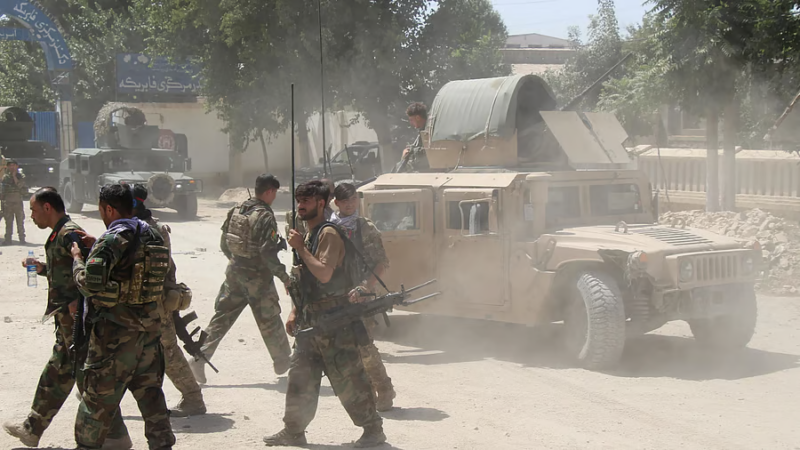Pakistan’s insincere war on terror

Advertisement
For hundreds of children at the Army Public School in Peshawar, Pakistan December 16, 2014 was just like any other day. They were settled into their classes. Some students paid rapt attention to their teachers while others daydreamed by the window. Sudden gunshots shattered the calm, though, and the day soon became Pakistan’s equivalent of the Beslan school siege.
Over the next eight hours, terrorists affiliated with Tehrik-e Taliban Pakistan went from room to room, systematically gunning down children who were cowering under desks and the dead bodies of their peers and teachers.
In the immediate wake of the massacre, the Pakistani army responded with fury. Politicians condemned the attacks, and airstrikes the next day reportedly killed 57 at a terrorist camp in the Tirah Valley.
The fingerprints of one man, former Tehrik-e Taliban Pakistan spokesman Ehsanullah Ehsan, were found at the scenes of the school attack and many other bloody attacks on Pakistan.
In 2012, for example, he was a member of the group that claimed responsibility for shooting schoolgirl and future Nobel laureate Malala Yousafzai. He was a member of groups that killed at least 60 people near the Wagah border post. He later claimed responsibility for killing Punjab’s interior minister.
After a division developed between Ehsan and leaders within some of the terrorist groups with which he operated, he negotiated a surrender to Pakistan authorities and turned himself in on February 5, 2017. That might have been a victory for Pakistan if its war against terror was sincere.
However, recent events show it is not. In February 2020, Ehsan announced that he had escaped Pakistani custody.
“I had surrendered to the Pakistani security authorities on February 5, 2017, under an agreement. I honored this agreement for three years, but the Pakistani authorities violated it and kept me in a prison along with my children,” he said in a statement.
The parents of the children slaughtered in the Peshawar massacre are distraught. “Ehsanullah Ehsan was not an average prisoner. He is a notorious terrorist. He was known worldwide as the spokesperson for the Tehrik-e Taliban — the same TTP that the army told us took responsibility for the attack,” Fazal Khan, a parent of one of those killed in 2014 said.
Initially, Ehsan said he had escaped to Turkey. However, that appears to have been a diversion.
Reports now claim that Ehsan is actually in Islamabad. According to latest report of Indian security agencies, Ehsanullah is sitting in [an Inter-Services Intelligence] facility in Islamabad as part of a special operation to launch attacks against Afghan leaders, but he has been claiming to be in Turkey to mislead people.
Arun Chaudhary, a former special director in the Intelligence Bureau, said, “Whether he is in Pakistan or in Turkey, it is clear that Pakistan is facilitating their movements and actions. Whether it is the Taliban in the northwest frontier province or Afghanistan, Islamabad needs to explain the access given to them.”
Chaudhary is right in his point. At issue is not only Pakistan’s credibility and the compact the Pakistani government has with its own people but also U.S. security and the Afghan peace process. According to Afghanistan’s media reports, the Taliban have carried out 222 attacks spread across all 29 provinces of Afghanistan, killing 171 Afghan security forces.
Pakistan Prime Minister Imran Khan may bluster at accusations that Pakistan is a terror sponsor, but the tendency by which Pakistani diplomats point to their own terror victims to suggest that Pakistan is a victim rather than a perpetrator ring hollow when some elements within Pakistan appear not only to facilitate the escape of a man responsible for one of the worst terror attacks on Pakistani soil but then also protect him for cynical purposes in Pakistan’s own capital.
Until Pakistan’s civilian government brings the Inter-Services Intelligence under control and holds it accountable for terrorism at home and abroad, there will be no regional peace, and there will be no peace inside Pakistan.
Advertisement






